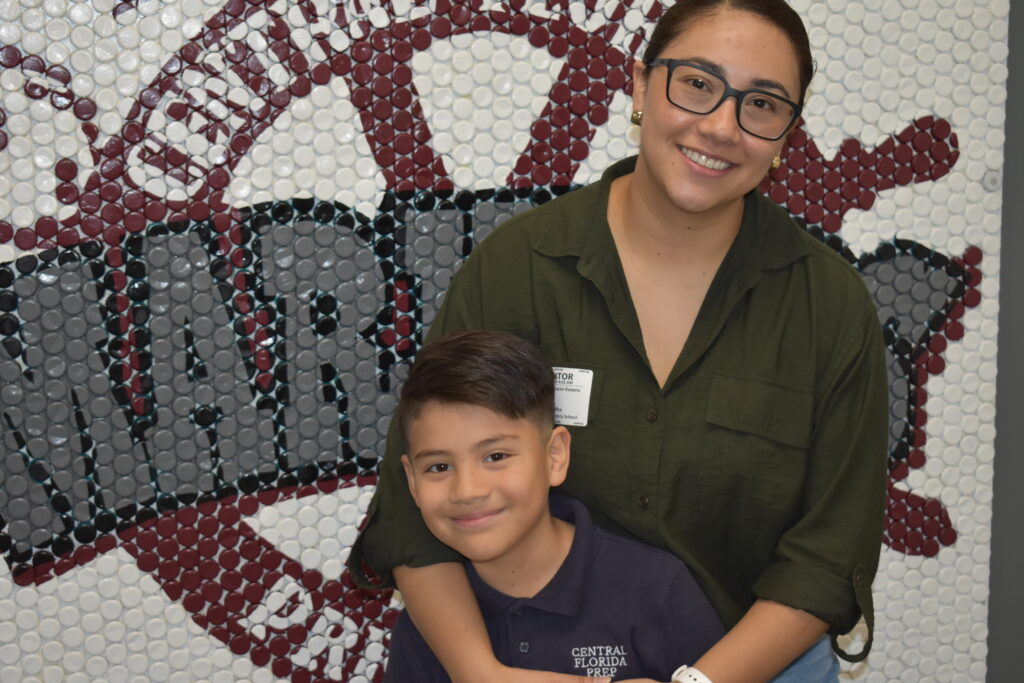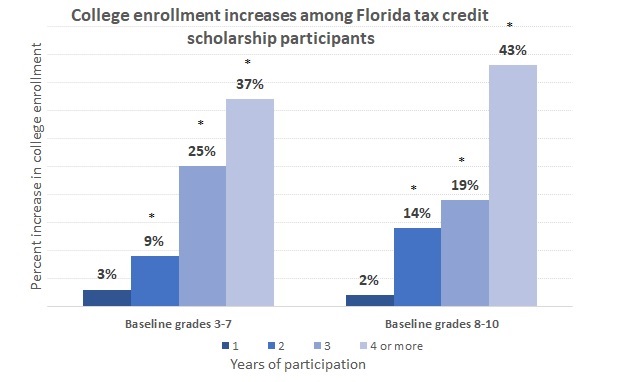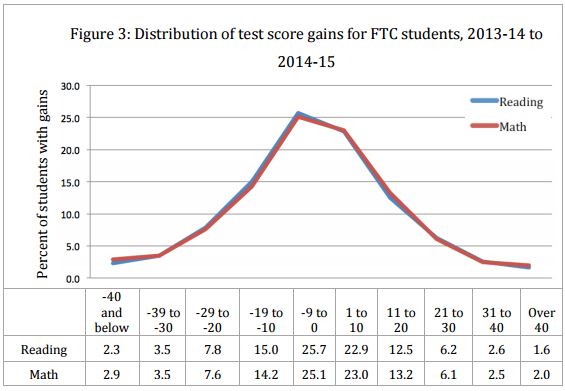
Emilio has settled into his new life in Florida, where he loves the weather and seeing alligators.
APOPKA – The days were long when the family lived up north, when Maria Alvaracin and her husband, Fernando Ramirez, worked two and sometimes three jobs each in one day just to afford rent and food and gas for the car they shared.
Maria cleaned houses and worked the overnight shift at McDonald’s, while Fernando worked in construction and landscaping, and sometimes painted cars.
“You need to start somewhere,” Maria said.
In 2017, they immigrated from their native Ecuador to Cambridge, Massachusetts, and left behind a country in political turmoil to build a better life for their son Emilio. But it was as if the young family was running in place. The ends never seemed to meet.
They had family in Florida, and they urged Maria and Fernando to move south, where the cost of living is cheaper, and the weather is much nicer.
So, they packed everything they had from their two-bedroom apartment into a small U-Haul truck and made a three-day drive to Florida before the start of the 2022-23 school year. They settled in Apopka, where they found another perk to raising a family in the Sunshine State – education choice scholarships.
Emilio, 9, attends Central Florida Preparatory School on a Florida Tax Credit Scholarship (FTC) made possible by corporate donations to Step Up For Students, which manages the program.
Emilio is a third grader at CFP, a PK-to-12 private school in Apopka.
An honor roll student who excels in reading and math, Emilio said he loves his school so much he feels he’s going to burst with excitement.
“The education here is great,” he said. “The teachers here are very nice. They’re amazing.”
That is the reaction Maria was hoping for when she and Fernando searched for the right educational setting for their son.
He attended the first grade at his district school in Cambridge, and it was a rough experience.
Emilio has attention deficit hyperactivity disorder (ADHD), and it was exacerbated by the large class size, which made it difficult for him to concentrate on the task at hand. Maria wanted fewer distractions that come with a favorable teacher-to-student ratio, hoping that could make the adjustment to life in the new country easier for Emilio.
“We’re trying to do our best for him to empower all his ability and skills, everything he already has, because he’s an amazing kid,” she said.
Emilio? Well, he wants to explore his school's science lab. Upon seeing the room when touring CFP with his parents, Emilio turned to Maria and said, “Mommy, this is my school.”
He’ll have to wait until he reaches middle school before he can take classes in the science lab and join the robotics club. So, Emilio is biding his time by building his own robot at home. He calls it “Fix It,” and it is the prototype for the life-size robot he plans to someday build. Fix It will be able to fetch and fix objects with the press of a button. Maybe, Emilio said, he’ll build Fix It so it can transform into a car.
This kid has big ideas.
“He’s always the light in the room,” Maria said.

Maria loves spending her afternoons helping Emilio with his homework.
On a recent morning, Emilio held court behind the desk in the office of CFP Vice Principal Julia Najera, talking about everything from building robots to his favorite teachers, his project for the school’s International Night program, his desire for a Harry Potter club and his younger brother, Samuel, who just celebrated his third birthday.
“He’s not shy,” Najera said. “He’s very lively. He has a big personality.”
That personality was quashed while Emilio attended school up north. Maria said he was depressed and often cried because he wasn’t doing well in school. Plus, the move from Ecuador to Cambridge was somewhat unsettling for Emilo, and he began to miss his family in his native country.
That changed once the family reached Apopka. They are surrounded by family, and Maria and Fernando were able to find jobs in the fields they worked in Ecuador. Maria works at an advertising agency, and Fernando works in IT.
They found CFP and the nurturing environment that Emilio needed.
“When we think about the culture of CFP, it’s the family feel that we want to create,” Najera said. “Emilio definitely represents that.”
Maria also offered high praise for the scholarship, because they don’t need to include private school tuition in their budget.
“It’s great because we can pay the rent and not have to work two jobs each, and now I can spend more time with Emilio,” she said.
Since Maria works remotely, she has time in the afternoon to help Emilio with his homework. And Maria said she loves helping Emilio with his homework.
“The scholarship is huge,” Maria said. “Emilio is not depressed anymore. He’s not crying every day. For us, it’s a relief because I feel like we’re doing something greater for my son.”
 Legislative preview: Fighting over the state budget is expected to dominate the Legislature in this election year. The top education issues being considered are potential revisions in H.B. 7069, which boosts charter schools, expanding Bright Futures scholarships and a bill providing scholarships for bullied K-12 students. Other issues include a bill requiring completion of a financial literacy course to graduate, an effort to expand computer coding, the use of schools as emergency shelters and a bill that would allow some employees to carry guns into schools. Tampa Bay Times. Tallahassee Democrat. Orlando Sentinel. News Service of Florida. Sarasota Herald-Tribune. Associated Press. Palm Beach Post. Sarasota Herald-Tribune.
Legislative preview: Fighting over the state budget is expected to dominate the Legislature in this election year. The top education issues being considered are potential revisions in H.B. 7069, which boosts charter schools, expanding Bright Futures scholarships and a bill providing scholarships for bullied K-12 students. Other issues include a bill requiring completion of a financial literacy course to graduate, an effort to expand computer coding, the use of schools as emergency shelters and a bill that would allow some employees to carry guns into schools. Tampa Bay Times. Tallahassee Democrat. Orlando Sentinel. News Service of Florida. Sarasota Herald-Tribune. Associated Press. Palm Beach Post. Sarasota Herald-Tribune.
Schools face sanctions: Thirty-one Florida private schools face possible sanctions for failing to file financial reports as the state requires by the Sept. 15 deadline. The law requires any private school that receives $250,000 or more in Florida Tax Credit Scholarships for low-income students or Gardiner Scholarships for students with special needs to submit reports to the nonprofits that administer the scholarships. Step Up For Students, which hosts this blog, helps administer both scholarship programs. redefinED. A troubled Pine Hills private school will close if it can no longer receive money from the state's scholarship programs, the school's attorney tells the Department of Education. Agape Christian Academy filed false fire inspections, hired people with criminal records and failed to pay its employees, according to records, leading to a state ban on any state scholarship money going to the school. Education Commissioner Pam Stewart will make a decision on the school's appeal of the ban. Orlando Sentinel.
Private school restrictions: A bill is filed that would prohibit individuals who have filed for bankruptcy within the past five years from operating private schools that accept students who receive state scholarship money. Filed by Sen. Linda Stewart, D-Orlando, the bill would apply to the Florida Tax Credit Scholarship program, which serves more than 100,000 students. Orlando Sentinel.
The “triply disadvantaged” students who participate in the nation’s largest private school choice program enroll in college and obtain degrees at higher rates than like students in public schools, and those rates climb the longer the students use the scholarship, according to a first-of-its-kind study released this morning by The Urban Institute.
The college enrollment rate overall is 15 percent higher for the low-income students who use Florida tax credit scholarships, the study found. That climbs to about 40 percent higher for students who use a scholarship at least four years.

The longer students participate in the Florida tax credit scholarship program, the more likely they are to enroll in college, compared to peers who do not receive scholarships. Chart by Step Up For Students, using data from the Urban Institute.
Meanwhile, scholarship students are 8 percent more likely to obtain associate degrees. That number rises to 29 percent for those who secured scholarships in earlier grades and used them at least four years.
Annual evaluations of standardized test results in the scholarship program have consistently found the average student who uses the program to attend a private school makes roughly one year's academic progress in one year's time.
They've also found students who use the scholarships tend to be more disadvantaged than other lower-income students who don't use them.
Urban Institute authors Matthew M. Chingos and Daniel Kuehn describe scholarship students this way: "They have low family incomes, they are enrolled at low-performing public schools (as measured by test scores), and they have poorer initial test performance compared with their peers."
Studies have looked at long-term outcomes for other programs that help disadvantaged students pay private school tuition.
They found students in Washington, D.C. and Milwaukee were more likely to graduate high school or attend college, respectively, if they received a voucher.
But researchers haven't looked as much at college enrollment among students who received scholarships from big, statewide programs. The Urban Institute report is unprecedented in its scale. It looks at more than 10,000 students across the nation's third-largest state. It uses data from the Florida Department of Education, as well as Step Up For Students, the nonprofit that helps administer the scholarships.
Unpacking the findings (more…)
Florida's tax credit scholarship program continues to enroll some of the most disadvantaged students from among the state’s lowest-performing public schools, according to the latest evaluation of the Florida Tax Credit Scholarship program. After they receive scholarships and enroll in private schools, they keep academic pace with all students nationally, based on their standardized test results.
The report is the eighth annual evaluation of the test score progress, and the second conducted by researchers at the Learning Systems Institute at Florida State University. Researchers examined the reading and math scores of 34,469 students in 1,285 private schools during the 2014-15 school year. Scholarship students in grades 3-10 have been required to take a state-approved nationally norm-referenced since 2006.
The tax credit scholarship program is administered primarily by Step Up For Students, which co-hosts this blog and employs the author of this post. It is the largest private school choice program in the country. Of the 69,950 students who received scholarships during the 2014-15 school year, 67 percent were black or Hispanic , and 53 percent lived in a single-parent household. The average household income was $24,135, or only 5 percent above poverty.
FSU researchers measure academic growth for students by comparing their national percentile ranking for one year to the next. A difference of zero reflects that the student has experienced the same academic growth as all other test-takers. In a finding that aligns with previous evaluations, researchers determined "the typical [scholarship] student tends to maintain his or her relative position in comparison with others nationwide. It is important to note that these national comparisons pertain to all students nationally, and not just students from low-income families."

Researchers found that, on average, low-income students who receive Florida school choice scholarships make comparable gains to their peers at all income levels nationally. Source: FTC annual program evaluation.